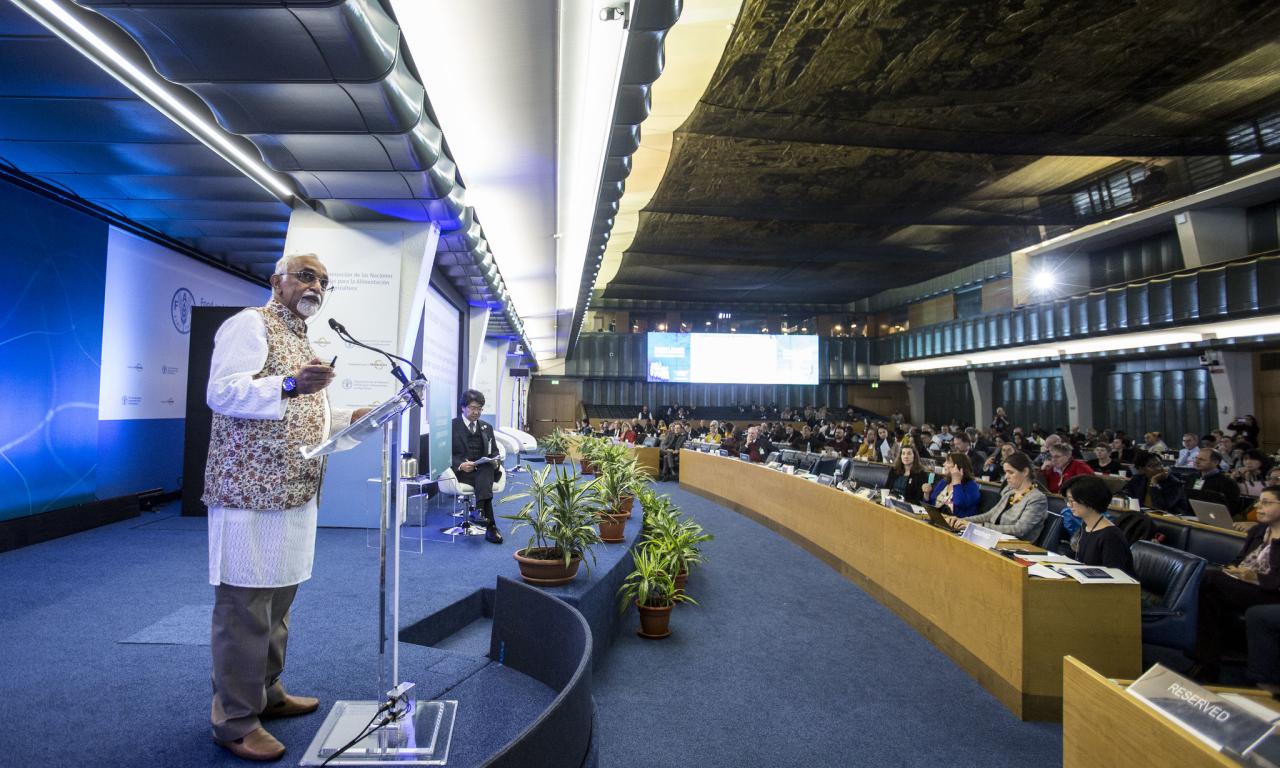
Fish harvested from naturally occurring stocks in ocean, coastal and inland waters are crucial to livelihoods, and food and nutrition security around the world.
With that in mind, the FAO International Symposium on Fisheries Sustainability, which counted WorldFish among its co-sponsors, aimed to find ways to strengthen the relationship between research and policymaking to sustainably and equitably improve all aspects of fisheries management.
Several WorldFish representatives attended the three-day event at FAO headquarters in Rome, recently, including research leaders, honorary fellows and a new board member. The event brought together around 1,000 people from government, the private sector, research, and civil society groups that represent fishers and fish workers.
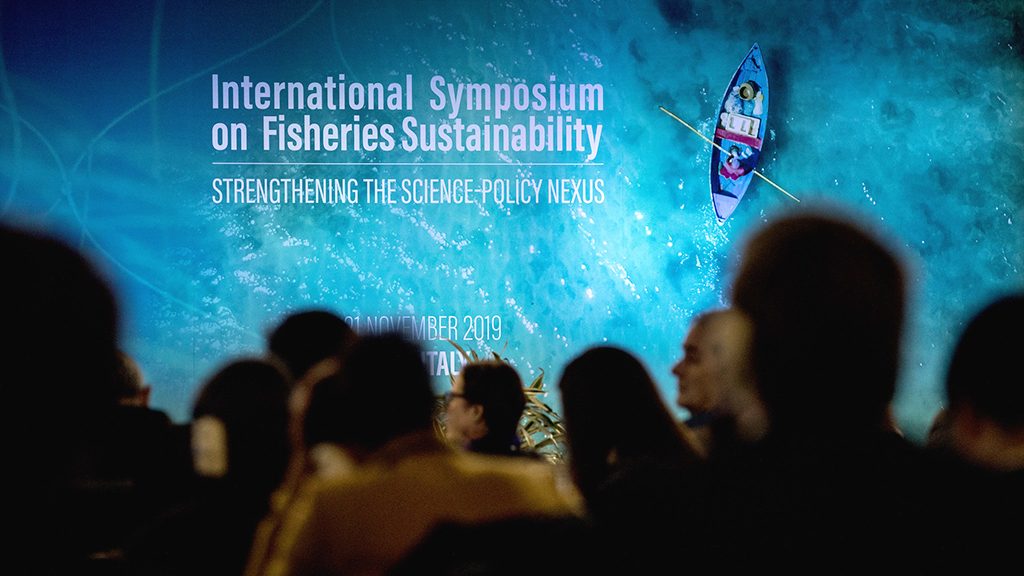
H. E. Dr Mona Mehrez, Egypt’s Deputy Minister of Agriculture for Livestock, Fisheries and Poultry Resources, and the newest member of the WorldFish Board of Trustees, spoke during the Symposium’s Official Opening.
As well as outlining some of Egypt’s efforts to make its fisheries more sustainable, she spoke of the importance of fish from different production systems in the government’s national strategy for achieving food security. In this regard, she mentioned the Fish For Africa Innovation Hub, an emerging public-private partnership led by WorldFish in collaboration with the Government of Egypt, among others. The Hub aims to build the capacity of Africa’s researchers and policymakers to develop equitable, sustainable and nutrition-sensitive fish production systems.
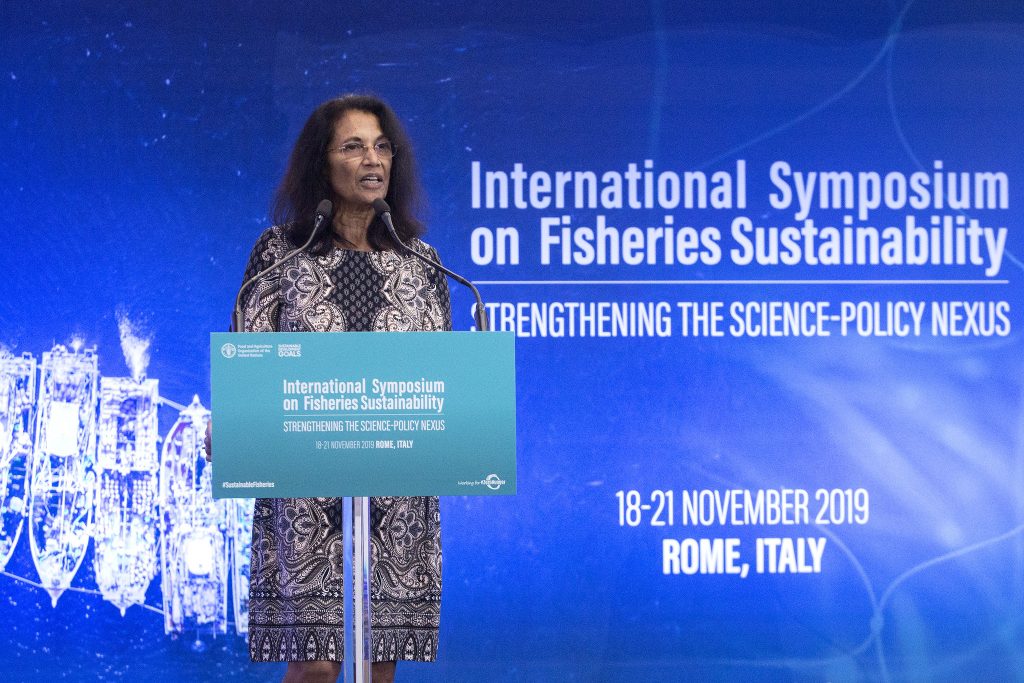
Also on Day One, Dr Shakuntala Thilsted, Program Leader, Value Chains and Nutrition, WorldFish, delivered a keynote presentation during the session on Fish in Food Security and Nutrition: From tide to table. She looked at the many health benefits of consuming fish – particularly small fish – which provide micronutrients like vitamin B12, iron and essential fatty acids. Further, she described fish as “a superfood in the first 1,000 days of life,” and provided an overview of efforts by WorldFish and its partners to develop convenient, nutritious, and safe fish-based products to tackle malnutrition in Bangladesh and Cambodia.
The opening session on Day Two looked at the challenge of Securing Sustainable Fisheries Livelihoods for the millions of women and men who depend on fisheries, and whose work helps feed billions of people. Dr Philippa Cohen, Program Leader, Resilient Small-Scale Fisheries, WorldFish, delivered a keynote presentation, Sustain or transform: secure, safe and equitable livelihoods in small-scale fisheries. In it she outlined the importance of small-scale fisheries as a foundation for livelihoods and way of life for millions of people. Her presentation illustrated the ways in which small-scale fisheries provide entry points for achieving the Sustainable Development Goals on Zero Hunger, Gender Equality, and Life Below Water.
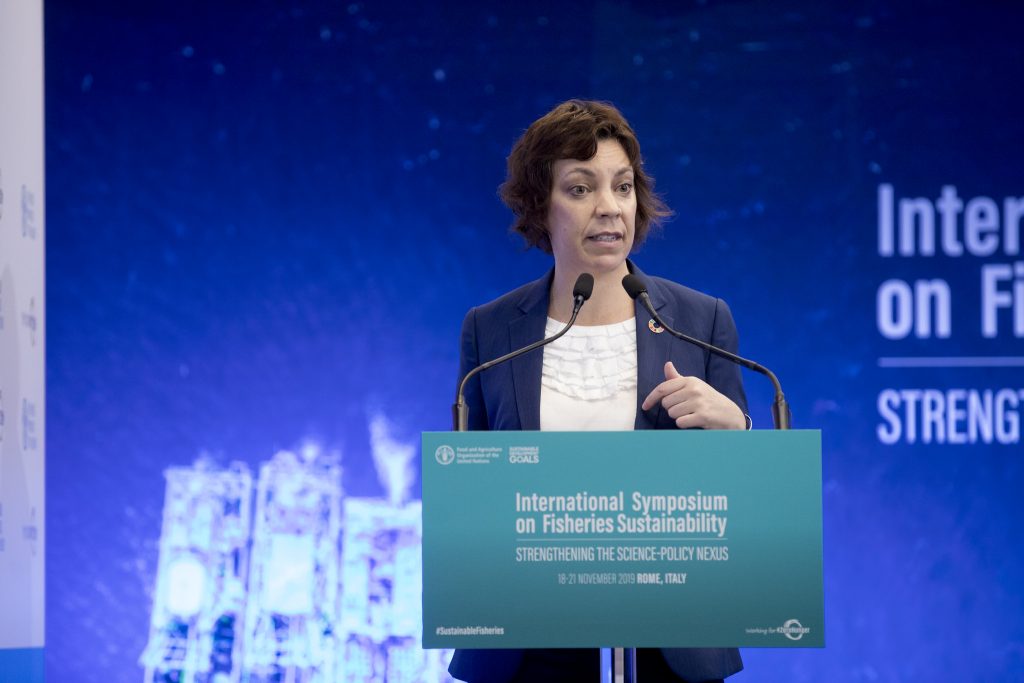
She also drew attention to two recent innovations: the development of a modelling approach published in Nature* that illustrated the potential of capture fisheries to address malnutrition in coastal areas, and the Gender Transformative Approach – pioneered by WorldFish – that can address, challenge and reduce underlying inequalities in small-scale fisheries. She closed by saying that complex challenges will require not only innovations, but also a strong focus on the underlying political, economic and social structures that can perpetuate or alleviate poverty, environmental decline and inequality.
Day Two also saw the launch of the first of a series of 16 reports called “blue papers” at an official side event by the High Level Panel for a Sustainable Ocean Economy. The Future of Food from the Sea report, which lists Dr Thilsted and WorldFish Honorary Fellow Prof Eddie Allison among its authors, examines the status and potential of food production from the ocean, and ways to achieve the SDG on Zero Hunger through ocean-based food.
Back in the plenary room, official proceedings continued with a panel discussion on Innovative approaches for inclusive fisheries. Panelists included Prof Allison, and Editrudith Lukanga, co-president of the World Forum of Fish Harvesters and Fish Workers (WFF), and a member of the Independent Steering Committee of the CGIAR Research Program on Fish Agri-Food Systems.
Prof Allison explained that the recent wave of interest in the blue economy from governments and corporate sectors brings opportunities and risks for small-scale fisheries. In addition, he noted that the interactions between small-scale fisheries and the blue economy are often seen either as an impediment or irrelevant to high level discussions that will ultimately influence the pace and nature of blue economy initiatives. He argued that a sustainable livelihoods approach that builds on people’s strengths, responds to their needs and aspirations, and which devolves power to where it can be responsibly and responsively exercised is still relevant to these discussions. He added that to achieve this, policies and other structures that can constrain or enable local actors need to be taken into account.
Ms Lukanga described the vibrant networks of fishers and fish traders that have emerged and are active across Africa. In particular, she explained the role that networks of women play, particularly in the processing, trade and distribution of nutrient-rich small fish.
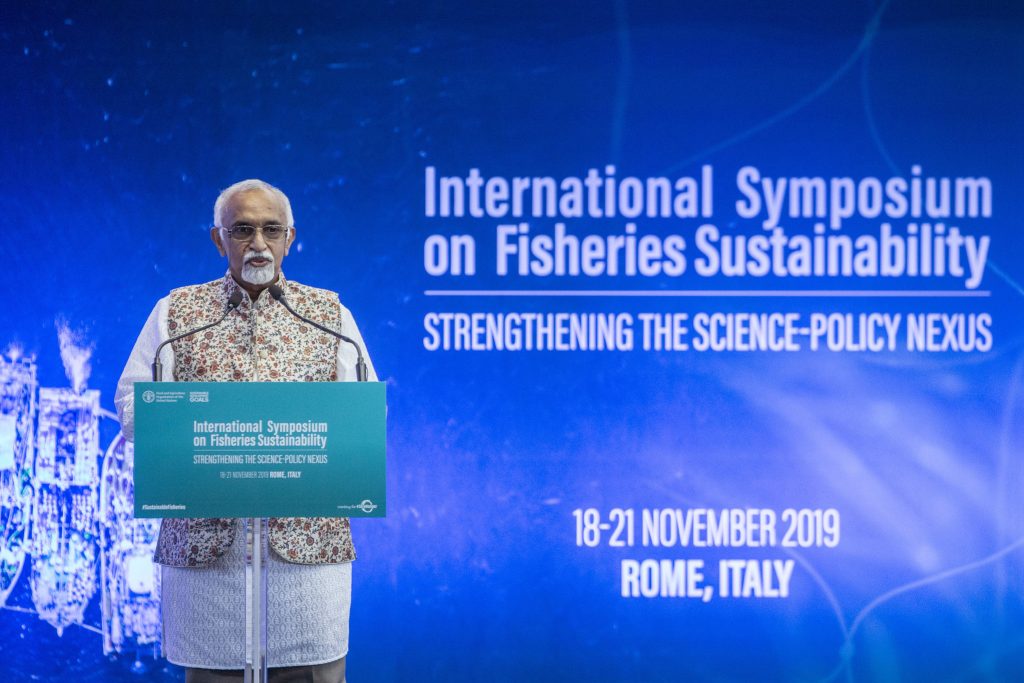
On the third and final day, the session on Policy opportunities for fisheries in the 21st century explored ways to respond to issues such as meeting the food demands of a growing world population, changes in the productivity of marine fisheries, and others. In his closing keynote presentation, WorldFish Visiting Professor John Kurien made several recommendations, and argued that decisions taken today about the role of fisheries in the blue economy should be sure to take the welfare of future generations into consideration.
Closing the event, Manuel Barange, director of FAO’s Fisheries and Aquaculture Policy and Resources Division, assured attendees that the debates and recommendations from the Symposium will be developed into a “new vision” for capture fisheries. This will show how the sector can respond to the complex and rapidly changing challenges facing society, and support the planning process of the UN Decade of Ocean Science for Sustainable Development (2021-2030).
An official report from the Symposium will be produced and tabled at the 34th session of the FAO Committee on Fisheries (COFI) in July 2020. It will include information on the global and regional sustainability of fisheries, examples of best management and partnership practices, and recommendations on how to better connect evidence and policy.
*
Also in attendance at the Symposium were: Dr Gareth Johnstone, Director General, WorldFish; Dr Michael Phillips Director, Aquaculture and Fisheries Sciences, WorldFish, and Director of the CGIAR Research Program on Fish Agri-Food Systems; and Dr Nigel Preston, former WorldFish Director General.
Click to view a slideshow of 15 innovations by WorldFish and the CGIAR Research Program on Fish, which was part of the Symposium’s Fisheries Innovation Forum.
Dr Shakuntala Thilsted, Pro. Eddie Allison and Editrudith Lukanga are part of the Symposium’s Advisory Board Committee.
*Harnessing global fisheries to tackle micronutrient deficiencies by Hicks et al was published in Nature, 25th September 2019.